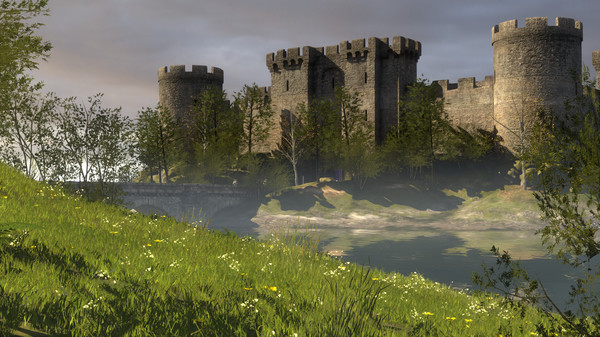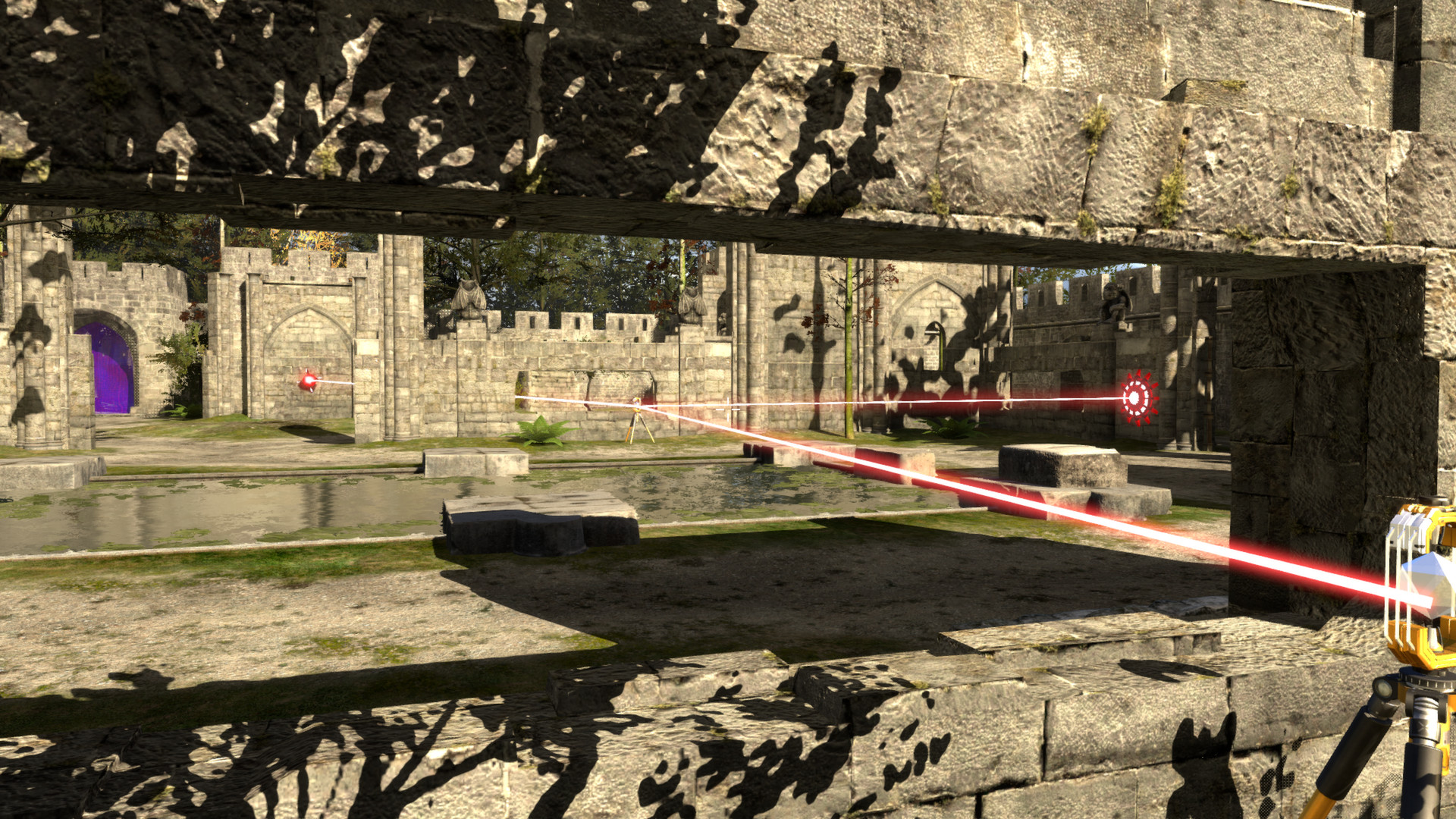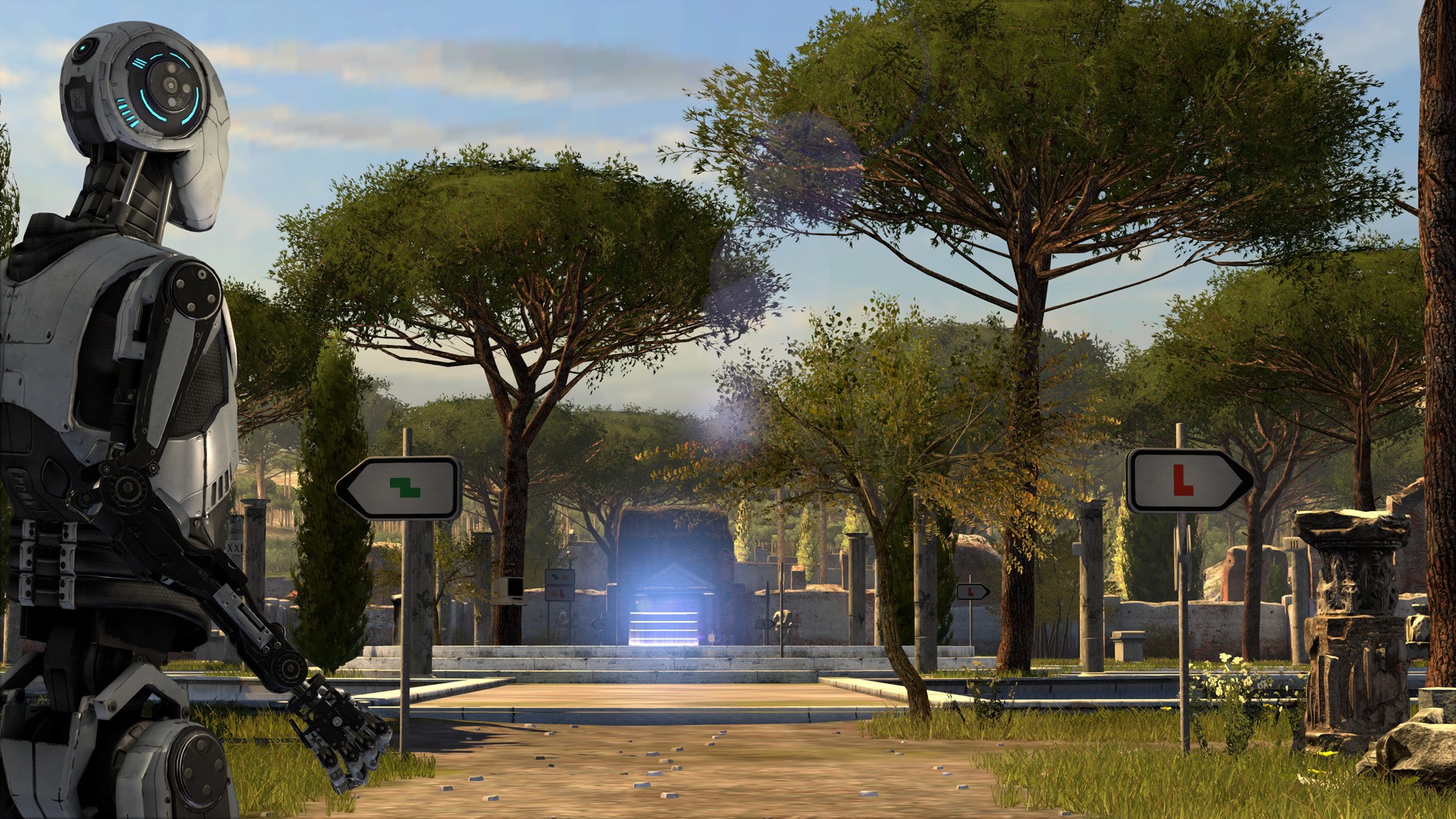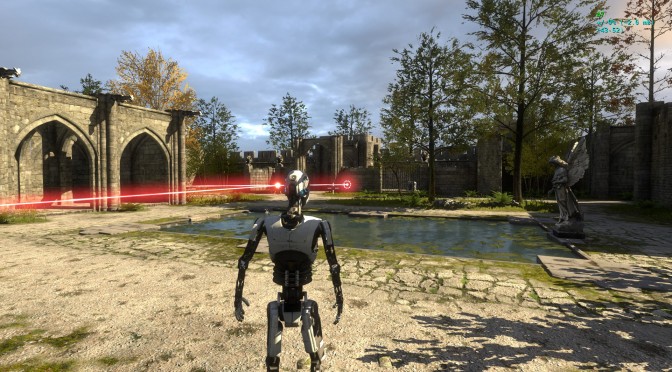The Talos Principle gives you the role of a sentient artificial intelligence placed within a simulation of humanity.Excellent puzzles and very convinient story.You are tasked tasked with solving a series of increasingly complex puzzles woven into a metaphysical parable about intelligence and meaning in an inevitably doomed world.
trailer:
Sense of isolation is pretty much what follows you through the game.The nature of humanity wrapped in an excellent first-person puzzle game.
But in this game you’re not even human to begin with.
You awaken in a Grecian garden with no memory of what came before, armed with only the sophisticated communication skills that an adult might possess.Sometimes the details of the world around you turn blurry and fuzzy, as if the world itself is glitching,  so it’s not hard to figure out you’re inside some kind of computer simulation.Your form is robotic in nature, so you immediately deduce that you’re not a biological human being.
so it’s not hard to figure out you’re inside some kind of computer simulation.Your form is robotic in nature, so you immediately deduce that you’re not a biological human being.
You will stumble during your exploration, on various lasser  barriers. Levels typically involve finding your way from one point to the next while bypassing the obstacles along the way. The most basic of these is the barrier of light, which you can dissipate by pressing a switch, aligning a colored beam of light into a matching hole, or disrupting it by using a special jammer you sometimes find nearby. Other obstacles, like mines, machine guns, or even the level itself, require similar strategies, but also involve timing and light reflexes. One element remains consistent: most puzzles task you with bypassing whatever is in your way through logic, often to the point where the game becomes a door-holding simulator. It’s not uncommon to hold a barrier open from both sides so that you can get the tools you need to progress further.
barriers. Levels typically involve finding your way from one point to the next while bypassing the obstacles along the way. The most basic of these is the barrier of light, which you can dissipate by pressing a switch, aligning a colored beam of light into a matching hole, or disrupting it by using a special jammer you sometimes find nearby. Other obstacles, like mines, machine guns, or even the level itself, require similar strategies, but also involve timing and light reflexes. One element remains consistent: most puzzles task you with bypassing whatever is in your way through logic, often to the point where the game becomes a door-holding simulator. It’s not uncommon to hold a barrier open from both sides so that you can get the tools you need to progress further.
Some of the details of the world around you sometimes turn blurry and fuzzy, as if the world itself is glitching.
When you’re not busy whittling away at the main task at hand, you’re free to explore the strange simulation. Aside from the forbidden tower, you’re free to wander within the bounds of each area. You won’t find much of interest aside from scenery, but you run into strange terminals scattered throughout the place. Each screen you find houses several pieces of information, some of which seem laughably irrelevant. Sometimes you find clues as to the nature of the place you find yourself, but sometimes you come across a history of the myth of Osiris or a set of lyrics to an insipid modern-day pop song. But they are all musings trying to define what it means to be human.
After hunting down every last bit of information that the world has to offer, you don’t come to any neat conclusions, but quite the opposite. Most of the knowledge that you accrue during your lengthy journey is quite contradictory. Clearly, humanity hasn’t figured itself out yet. But you trudge on anyway, gathering tetrominoes as you use the knowledge of the past to build a future for yourself. The hints that the QR codes give build on your past experiences to help you solve the harder puzzles. The vast repository of knowledge at your fingertips help you form ideas about humanity and morality, which you arm yourself with when talking to that smug assistant. Every idea, every thought you come across, helps shape your belief system, ultimately informing whether you accept eternal life, ascend the tower, or stay behind and help the next generation reach new metaphorical heights. Your success is truly built from the whole of everyone’s past triumphs and failures.
The Talos Principle is an incredible piece of art,packed with a lot of philosophy and history content.But all of that is almost beside the point in the face of the game’s thematic ambitions.It serves as a fantastic representation of the human condition, complete with curiosity, speculation, wonder, fear, and a yearning to know the unknowable. But most importantly, it nails the role that isolation plays in the human condition. 
Deffinitely worth of playing and enjoying in this beautifuly story driven game.Which has character and remearkably presenting it.
- developer:Croteam
- publisher:Devolver Digital
- date of release:11.december 2014.


Your Comment Here